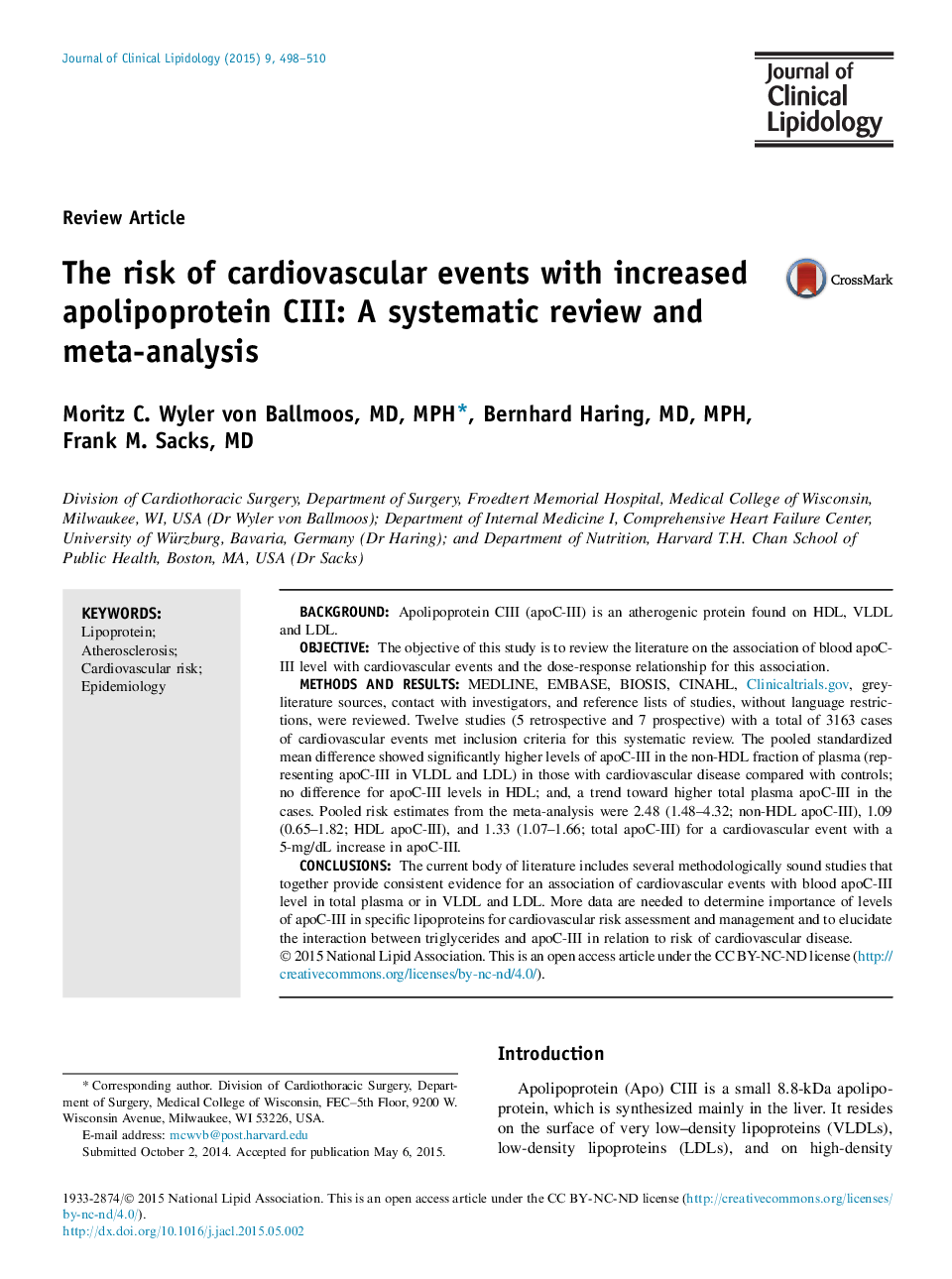| Article ID | Journal | Published Year | Pages | File Type |
|---|---|---|---|---|
| 5985762 | Journal of Clinical Lipidology | 2015 | 13 Pages |
â¢Meta-analysis of 11 studies including 2832 cases with cardiovascular events (CVE).â¢Controls have lower non-high-density lipoprotein (HDL) apoC-III levels than subjects with CVE.â¢Both total plasma and non-HDL apoC-III are associated with an increased risk of CVE.â¢Higher HDL apoC-III levels may also increase CVE risk, but data are limited.
BackgroundApolipoprotein CIII (apoC-III) is an atherogenic protein found on HDL, VLDL and LDL.ObjectiveThe objective of this study is to review the literature on the association of blood apoC-III level with cardiovascular events and the dose-response relationship for this association.Methods and resultsMEDLINE, EMBASE, BIOSIS, CINAHL, Clinicaltrials.gov, grey-literature sources, contact with investigators, and reference lists of studies, without language restrictions, were reviewed. Twelve studies (5 retrospective and 7 prospective) with a total of 3163 cases of cardiovascular events met inclusion criteria for this systematic review. The pooled standardized mean difference showed significantly higher levels of apoC-III in the non-HDL fraction of plasma (representing apoC-III in VLDL and LDL) in those with cardiovascular disease compared with controls; no difference for apoC-III levels in HDL; and, a trend toward higher total plasma apoC-III in the cases. Pooled risk estimates from the meta-analysis were 2.48 (1.48-4.32; non-HDL apoC-III), 1.09 (0.65-1.82; HDL apoC-III), and 1.33 (1.07-1.66; total apoC-III) for a cardiovascular event with a 5-mg/dL increase in apoC-III.ConclusionsThe current body of literature includes several methodologically sound studies that together provide consistent evidence for an association of cardiovascular events with blood apoC-III level in total plasma or in VLDL and LDL. More data are needed to determine importance of levels of apoC-III in specific lipoproteins for cardiovascular risk assessment and management and to elucidate the interaction between triglycerides and apoC-III in relation to risk of cardiovascular disease.
